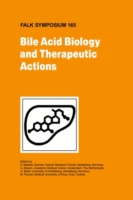- ホーム
- > 洋書
- > 英文書
- > Science / Mathematics
Full Description
Online learning from a signal processing perspective There is increased interest in kernel learning algorithms in neural networks and a growing need for nonlinear adaptive algorithms in advanced signal processing, communications, and controls. Kernel Adaptive Filtering is the first book to present a comprehensive, unifying introduction to online learning algorithms in reproducing kernel Hilbert spaces. Based on research being conducted in the Computational Neuro-Engineering Laboratory at the University of Florida and in the Cognitive Systems Laboratory at McMaster University, Ontario, Canada, this unique resource elevates the adaptive filtering theory to a new level, presenting a new design methodology of nonlinear adaptive filters.
Covers the kernel least mean squares algorithm, kernel affine projection algorithms, the kernel recursive least squares algorithm, the theory of Gaussian process regression, and the extended kernel recursive least squares algorithm
Presents a powerful model-selection method called maximum marginal likelihood
Addresses the principal bottleneck of kernel adaptive filters—their growing structure
Features twelve computer-oriented experiments to reinforce the concepts, with MATLAB codes downloadable from the authors' Web site
Concludes each chapter with a summary of the state of the art and potential future directions for original research
Kernel Adaptive Filtering is ideal for engineers, computer scientists, and graduate students interested in nonlinear adaptive systems for online applications (applications where the data stream arrives one sample at a time and incremental optimal solutions are desirable). It is also a useful guide for those who look for nonlinear adaptive filtering methodologies to solve practical problems.
Contents
PREFACE. ACKNOWLEDGMENTS.
NOTATION.
ABBREVIATIONS AND SYMBOLS.
1 BACKGROUND AND PREVIEW.
1.1 Supervised, Sequential, and Active Learning.
1.2 Linear Adaptive Filters.
1.3 Nonlinear Adaptive Filters.
1.4 Reproducing Kernel Hilbert Spaces.
1.5 Kernel Adaptive Filters.
1.6 Summarizing Remarks.
Endnotes.
2 KERNEL LEAST-MEAN-SQUARE ALGORITHM.
2.1 Least-Mean-Square Algorithm.
2.2 Kernel Least-Mean-Square Algorithm.
2.3 Kernel and Parameter Selection.
2.4 Step-Size Parameter.
2.5 Novelty Criterion.
2.6 Self-Regularization Property of KLMS.
2.7 Leaky Kernel Least-Mean-Square Algorithm.
2.8 Normalized Kernel Least-Mean-Square Algorithm.
2.9 Kernel ADALINE.
2.10 Resource Allocating Networks.
2.11 Computer Experiments.
2.12 Conclusion.
Endnotes.
3 KERNEL AFFINE PROJECTION ALGORITHMS.
3.1 Affine Projection Algorithms.
3.2 Kernel Affine Projection Algorithms.
3.3 Error Reusing.
3.4 Sliding Window Gram Matrix Inversion.
3.5 Taxonomy for Related Algorithms.
3.6 Computer Experiments.
3.7 Conclusion.
Endnotes.
4 KERNEL RECURSIVE LEAST-SQUARES ALGORITHM.
4.1 Recursive Least-Squares Algorithm.
4.2 Exponentially Weighted Recursive Least-Squares Algorithm.
4.3 Kernel Recursive Least-Squares Algorithm.
4.4 Approximate Linear Dependency.
4.5 Exponentially Weighted Kernel Recursive Least-Squares Algorithm.
4.6 Gaussian Processes for Linear Regression.
4.7 Gaussian Processes for Nonlinear Regression.
4.8 Bayesian Model Selection.
4.9 Computer Experiments.
4.10 Conclusion.
Endnotes.
5 EXTENDED KERNEL RECURSIVE LEAST-SQUARES ALGORITHM.
5.1 Extended Recursive Least Squares Algorithm.
5.2 Exponentially Weighted Extended Recursive Least Squares Algorithm.
5.3 Extended Kernel Recursive Least Squares Algorithm.
5.4 EX-KRLS for Tracking Models.
5.5 EX-KRLS with Finite Rank Assumption.
5.6 Computer Experiments.
5.7 Conclusion.
Endnotes.
6 DESIGNING SPARSE KERNEL ADAPTIVE FILTERS.
6.1 Definition of Surprise.
6.2 A Review of Gaussian Process Regression.
6.3 Computing Surprise.
6.4 Kernel Recursive Least Squares with Surprise Criterion.
6.5 Kernel Least Mean Square with Surprise Criterion.
6.6 Kernel Affine Projection Algorithms with Surprise Criterion.
6.7 Computer Experiments.
6.8 Conclusion.
Endnotes.
EPILOGUE.
APPENDIX.
A MATHEMATICAL BACKGROUND.
A.1 Singular Value Decomposition.
A.2 Positive-Definite Matrix.
A.3 Eigenvalue Decomposition.
A.4 Schur Complement.
A.5 Block Matrix Inverse.
A.6 Matrix Inversion Lemma.
A.7 Joint, Marginal, and Conditional Probability.
A.8 Normal Distribution.
A.9 Gradient Descent.
A.10 Newton's Method.
B. APPROXIMATE LINEAR DEPENDENCY AND SYSTEM STABILITY.
REFERENCES.
INDEX.






